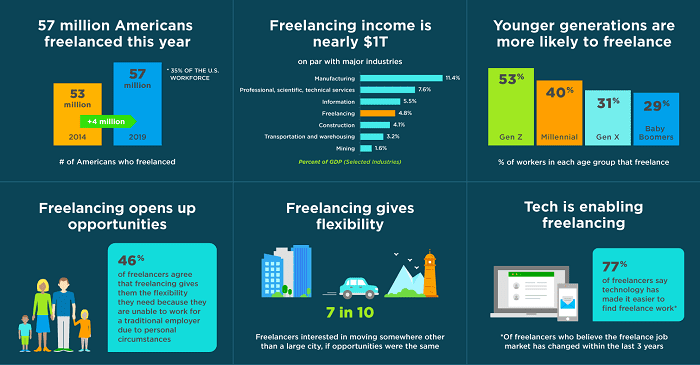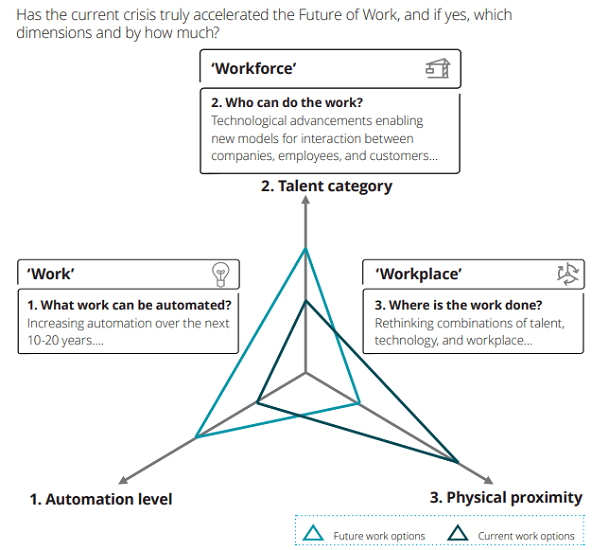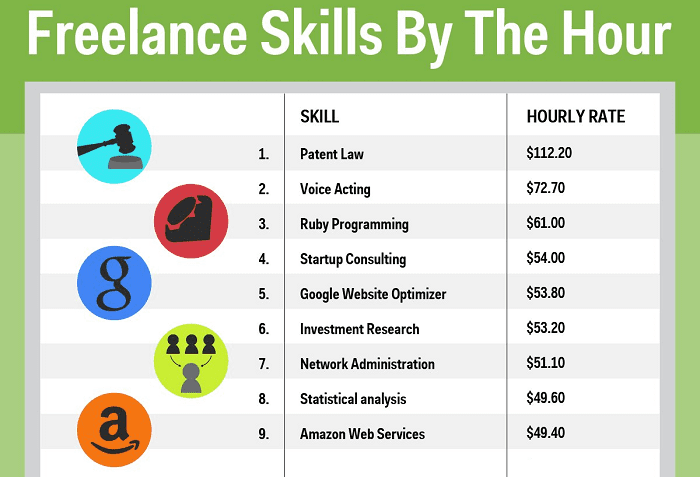Whenever there is a nationwide or worldwide crisis that impacts economies on a large scale, financial news and reports tend to focus on the hardest-hit industries and major organizations within these. However, what’s scarcely reported are the encouraging signs of businesses and the economy getting back on their feet after being stonewalled by a recession or slowdown.
While enterprises employing thousands of people in industries like travel, IT, and auto are always in focus, few publications talk about the 57 million Americans that are self-employed or gainfully employed in freelancing, including yours sincerely. All in all, we contribute $1 trillion or 5% of the US GDP, as per the Freelancing in America study by Upwork and Freelancers Union.

The majority of freelancers, consultants, and solo entrepreneurs have taken a hard hit to their business as a result of the current slowdown. Uber drivers, photographers, creatives involved in film production, all have had their daily work going up in smoke.
The silver lining is that workplace, and work practices will change forever, and in fact, freelancers will be better poised to adapt and conform to them. That said, if you’re self-employed or operate solo, this is the time to build your base, add new capabilities, and strengthen them. It is a great time to reinvent yourself so that you can ride the storm and be in a position of strength to grow your business when the dust settles. Here’s how…
1. Revisit Your Purpose
Freelancing is a marriage with a divorce every day. If you have to hang in there, you need to remember why you got into it in the first place. It’s easy to succumb to the pressure and start thinking of a steady income in times of trouble.
However, don’t forget that this is the greenfield you jumped the fence for. If you’ve just made the switch from a cushy (or horrible) job, ask yourself if you have what it takes. If you’ve stayed put with freelancing for a long time, take stock of the benefits you’ve enjoyed so far.
Take heart from the fact that the world over, large companies are finally sitting up and taking note of the power of the gig economy. Caught unawares by the lack of readiness of their workforce in working remotely or from home, many organizations are open to changing their HR model. According to the Future of Work Accelerated report from Deloitte India, 60% of organizations are looking to decrease their dependence on full-time workers by increasing outsourced work to gig workers.

2. Be Flexible
“Float like a butterfly, sting like a bee.” ~ Muhammad Ali
If there’s one thing freelancers are inherently good at, it’s being good at multiple things. And that makes it easier for you to pivot, or at least change the nature of your primary offering or service to suit the new conditions.
For example, if you are a photographer, but can’t go to events or your shoots are canceled, why not shoot indoor objects? Or maybe perfect those rusty Photoshop skills and update your portfolio on the website? Then, you could go a step ahead and sell your photos online.
If all else fails, you could simply choose to learn a few skills that would let you get a foot in the door into related verticals that have more work or pay higher.

And once you’ve got started and set with the services that are comfortable and profitable for you, make sure you go the extra mile to stand out from the competition (which includes companies as well as other freelancers).
3. Claim Help
Ask, and you shall receive it. If you are not comfortable asking, the internet (and the government) is here to help.
There are innumerable online communities and groups that help freelancers organize and help each other out with information on rights, back-office management, referrals, and even small monetary donations. Freelancers Union, for example, is a 25-year old association with nearly 500,000 members in the US. They provide resources, advocacy, education, funds, and other support to independent workers. Joining is free.
Moreover, with a third of the US workforce being self-employed, even the government has to lend an ear to freelancers. “Freelancing has become a long-term career choice for an increasingly diverse group,” said Caitlin Pearce, Executive Director of Freelancers Union. “But this workforce continues to face significant challenges in being able to access affordable healthcare and fundamental protections so they can get paid fairly and on time for the work they do. As freelancers are 18 percentage points more politically active than the general population, policymakers are advised to listen to their voices.”
And listening they are! For the first time, independent workers are getting federal unemployment benefits in the US. The $2 trillion CARES stimulus package includes unemployment insurance for freelancers too. While the disbursement process is complicated, it’s a start. In the UK, too, the Self-Employment Income Support Scheme (SEISS) allows freelancers and partnerships to apply for a grant of up to £7,500.
4. Make Money Online
This is the perfect time for gym trainers, cooks, and other pros to start that long-delayed YouTube channel or put together a course that can be sold through a website.
If you already blog now and then, the slowdown is a golden opportunity to spruce up your website, update your work portfolio, and think about creating a loyal readership to whom you can sell resources later. Here are some quick ideas to monetize your blog:
- Create a critical mass of useful content. Without content that sets you apart in your niche, there will be no visitor base, and without visitors, who will you even think of selling to?
- Install Google AdSense and get some ads running on your site. As your readers build up, this will be a nice side income to have. There are ad networks other than AdSense too – like Ezoic, Media.net, Adversal, and so on, so try out a couple and find out which works best for you.
- Start affiliate marketing – it’s the process of earning a commission by promoting (reviewing, talking about, and linking to) products that are relevant to your niche. But tread slowly unless you’re an “influencer” in your space.
- Turn your expertise into a course or a consulting package. This can be through in-depth resources (like ebooks) or creatives (like stock images) that you sell via your site or a specialized platform, or a series of webinars or recorded videos.
5. Manage Your Finances (And Stress)
Freelancers are already used to not getting the benefits and perks available to in-office employees. This problem is exacerbated by the drying up of scheduled work, and radical changes in the budgets and priorities of brands and clients.
Given the uncertainty in the time, it might take for things to get back to pre-recession levels, you have to be very, very prudent in running your business as well as managing your personal affairs. Here are some tips:
- Save every possible expense in business. Limit your spending on the basics – if you rent a shared workspace, see if you can operate from home for a few days. Cancel subscriptions to tools you don’t need and memberships to organizations or clubs you’ve joined. Renegotiate your terms with insurance companies, landlords, vendors, and suppliers.
- Avoid financial stress by managing money both at work and at home. Invoice your clients immediately; set the terms to ensure quick payment from all new clients you take on. Record all your expenses accurately (a simple spreadsheet will do). Keep your business and personal money separate. Abide by all laws and regulations – make sure you don’t end up paying any fines or need to use a lawyer as far as possible.
- Join – or form – a small group or community of like-minded freelancers and help each other out. When a potential job is bigger than you can handle, get a few reliable folks on board. If it’s not the right fit for you, pass it on to someone in your network. Of course, what goes around comes around, but this will have the added benefit of the client considering you as a go-to person for all their work in your niche. The collaboration will keep your pipeline flowing, ensure you don’t get stuck, bolster your reputation, and, most importantly, keep you sane.
Over to You
“Freelancing is a respected, long-term career path,” said Stephane Kasriel, CEO of Upwork. “It’s remarkable to see the ways freelancing is opening up opportunities for inclusion in the workforce. Companies that want access to skilled professionals who are proactively training themselves and incredibly self-motivated should turn to independent professionals.”
Remember, the global economy has been on a firm footing over the past decade, and it’s an excellent time for freelancing. The bounce back from any slowdown could be swift and robust, or it could be a gradual climb. What’s certain, however, is that the future of work is conducive to freelancing, and it’s coming soon. Good luck!
DepositPhotos – freelancer


